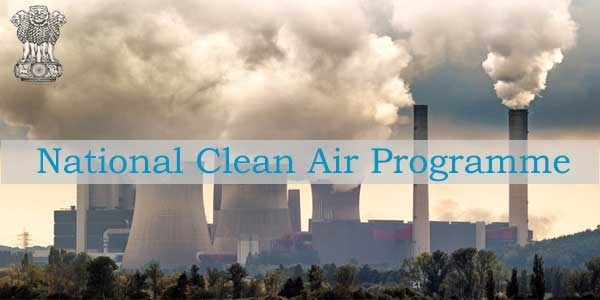‘Three years since launch of NCAP, Maharashtra yet to identify pollution sources’
| Date :11-Jan-2022 |

Staff Reporter :
State is taking baby steps towards implementation of NCAP to improve its air quality, claims CREA report
Being one of the most urbanised States in the country, Maharashtra is taking baby steps towards implementation of National Clean Air Programme (NCAP) to improve its air quality and the progress so far is also very scarce and shoddy, reveals Centre for Research on Energy and Clean Air (CREA) in a report released recently. In January 2019, Government of India had launched country’s first NCAP with an intent to improve the country’s air quality on a war-footing. However, three years since the programme was announced, CREA in its recent report ‘Tracing the Hazy Air: Progress Report on National Clean air Programme (NCAP)’ reveals that air quality improvement is slow and negligible.
Maharashtra has the most number of cities that have experienced air pollution levels exceeding National Ambient Air Quality Standards (NAAQS). Despite having 25 such cities in State, only 19 cities have been included in NCAP and local authorities have set emission reduction targets only for two cities in the State – Amravati, and Aurangabad. “Government of Maharashtra has announced that it will complete the mandatory source-apportionment studies in 19 cities by March 2023, just a year ahead of the country’s deadline to reduce PM 2.5 levels,” said Sunil Dahiya, author of the report and an analyst at CREA. “The NCAP studies were started in 2017 and expected to be completed by 2019, such a delay is wastage of public money and resources and would delay the directed sector-specific actions,” Dahiya added. Maharashtra has 80 manual and 41 continuous ambient air quality monitoring stations across 36 districts in the State. Nagpur, which is also included in the non-attainment list for NCAP, has only one continuous ambient air quality monitoring station and five manual stations.
Maharashtra Pollution Control Board (MPCB) is going to install three more continuous monitoring stations in Nagpur which will start functioning likely from February. Commenting on the air quality monitoring infrastructure, Dahiya said, “In Maharashtra, existing monitoring infrastructure is currently insufficient, and there is an urgent need to aggressively monitor air quality across the state.” The researcher said, “While increasing the number of monitoring stations is one way to improve the transparency of air quality data, another step that should be taken in ensuring that industries share data from monitoring stations installed in and around their facilities, as they are required to monitor air quality in accordance with environmental clearance conditions.” “But, sadly, all timelines for the formulation of state and regional level action plans as well as emission inventory and source apportionment studies have passed, and Maharashtra has not formulated any of them till now,” said Dahiya.